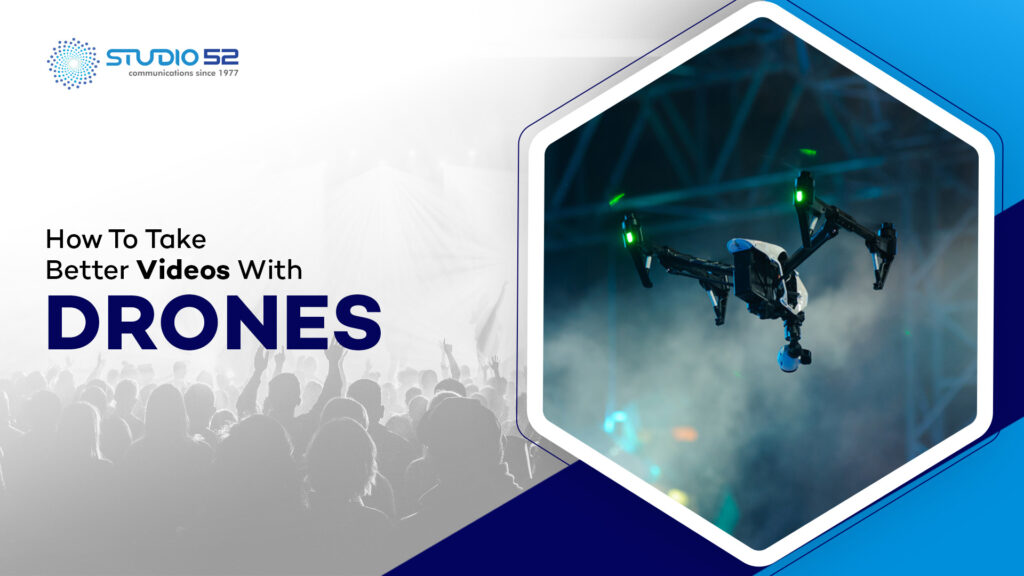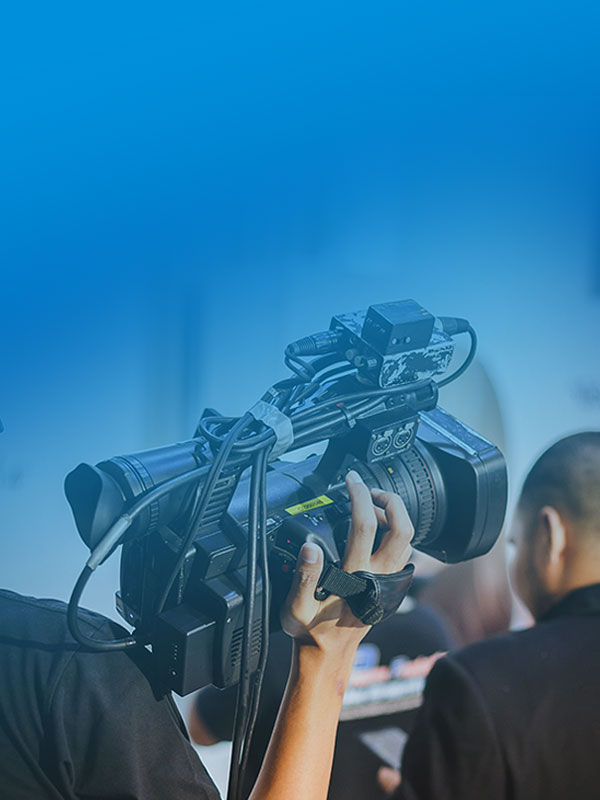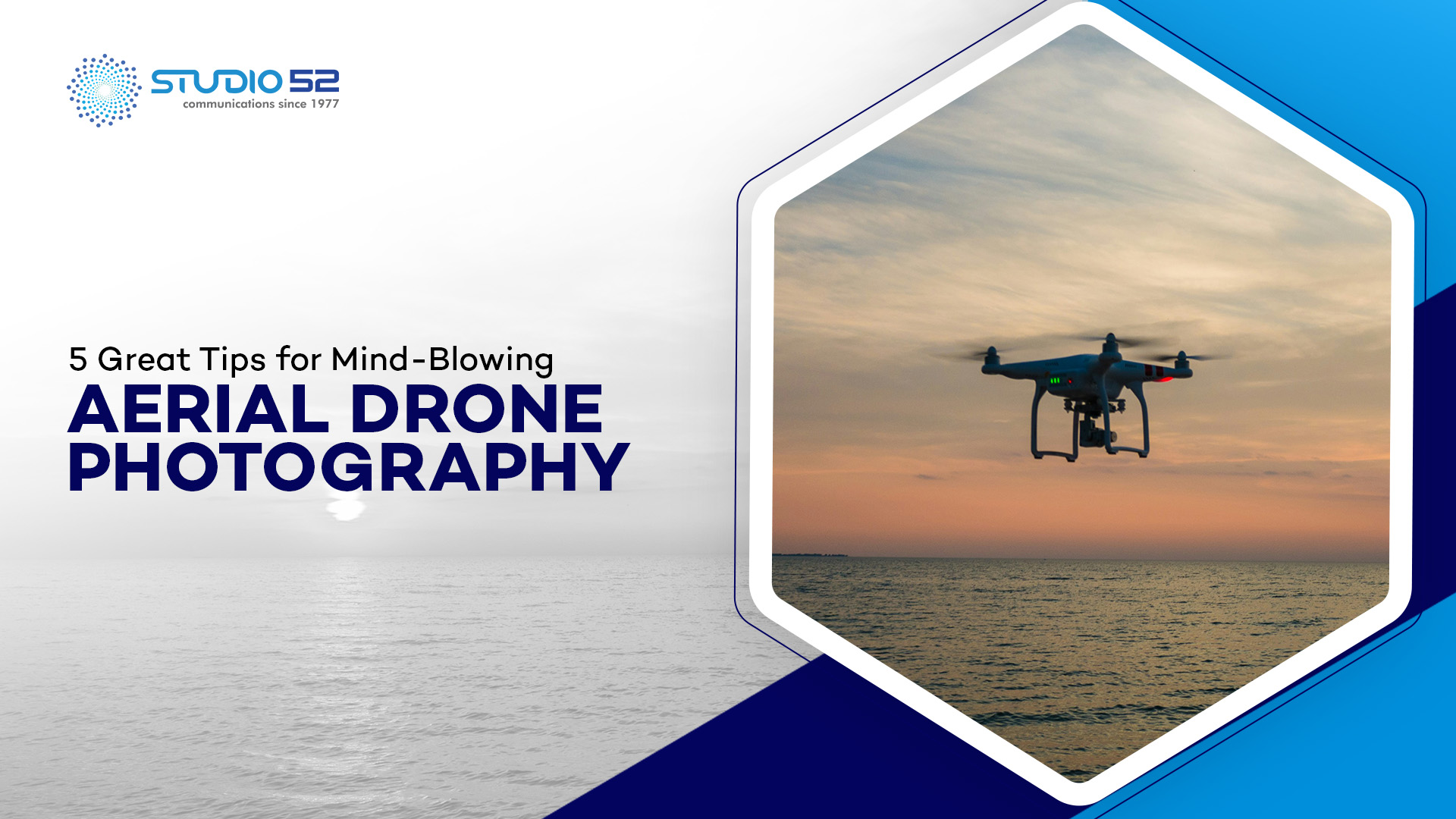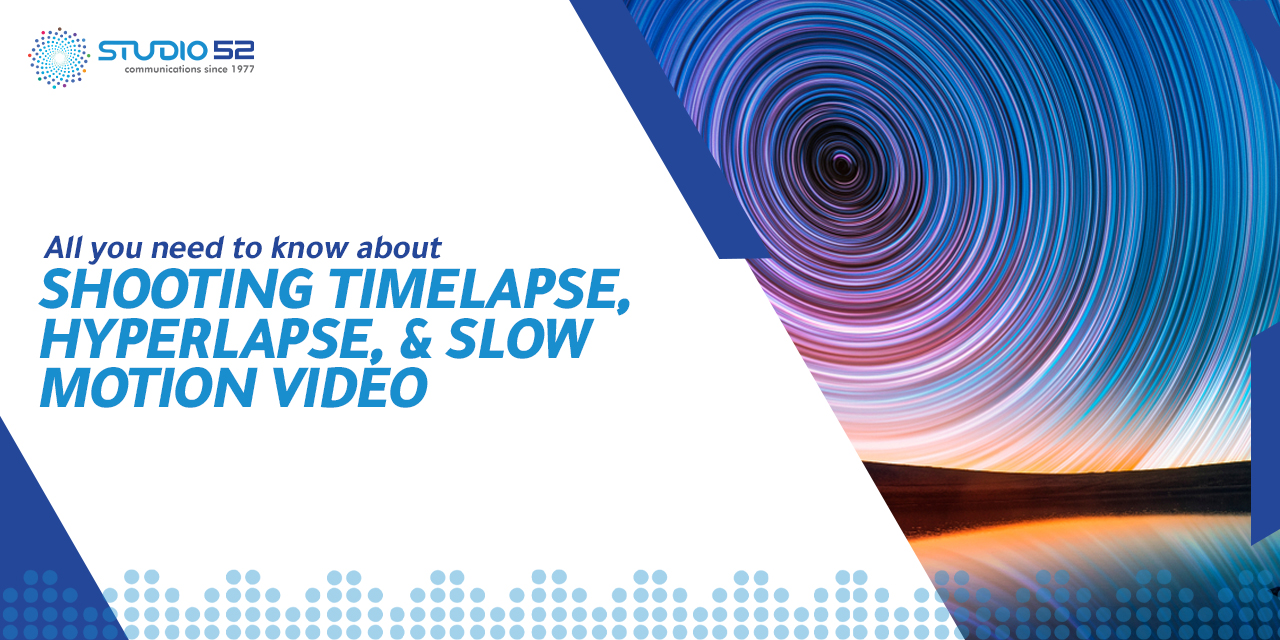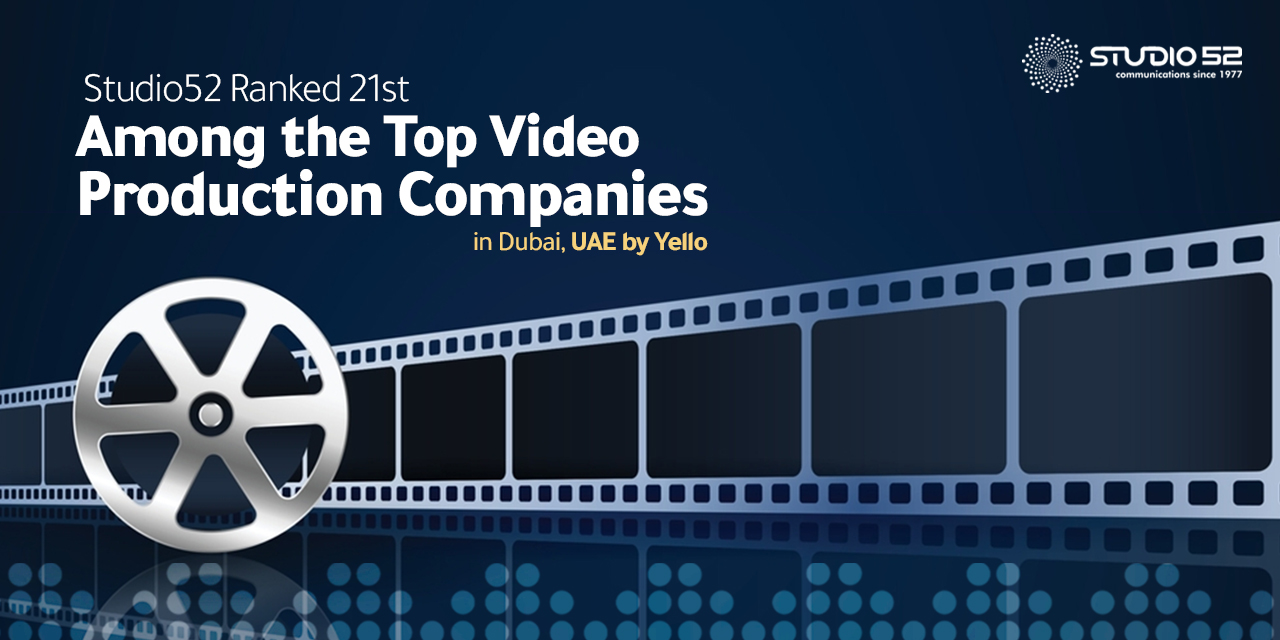You do not need to be a professional to create amazing videos with your drone! However, there are some things you can improve on if you’d wish to take better footage.
Especially if you’re shooting for business and marketing purposes. Here at Studio52, we’ve created thousands of marketing-related videos with our drones, and today we decided to help you take better videos with yours!
Table of Content
Taking It Slow and Low
It’s all about taking it slow. Especially at the beginning. If you fly through the sky and keep jerking your drone from one random direction to the other, the footage will look distorted and awful. Try and move your drone slowly through the air without any sudden changes in motion and direction you’re moving in. This will create much more beautiful and immersing footage.
The lower you fly your drone, the greater the sense of motion you’ll have (not to mention your audience). High altitudes create footage that’s hard to concentrate on and that shows too much with no sense of focus.
Try practicing your slow and low flying by shooting that classic reveal-style shoots. Pick an attractive and interesting focal point, such as a building, a groove, a statue, or another. Place your drone to a standstill in front of the chosen focal point and hit record. After you’ve done so, fly very slowly to one side or above the object. You can also keep the drone at the same height as the object and move the drone slowly across the frame to reveal the subject and then revolve around it. Some drones will allow you to fly in autonomous orbit with a perfect circle around the object.
This method always creates a perfect video! Master drone footage perspective and production techniques to elevate your visual storytelling like never before.
Get Familiar With Gimbal
Gimbal control is essential for fluid and exceptional video. But what is it really?
Gimbal is a device that holds your camera in place when the drone is in motion. Essentially, this device enables steady movement and no sudden jerks of the camera. High-quality gimbals stabilize your picture with three axes (roll, yaw, and pitch).
To perfect your gimbal skills, set it to a slow setting which will allow you to play with the gimbal and get familiar with how it behaves mid-air. Slow setting can also be acquired by lowering gimbal sensitivity and increasing smoothness.
No Jittery Movements
This especially goes for your panning motion, as good panning is an art. Some pros stick and recommend you to use a seven-second rule — this means that your every panning motion takes seven seconds from start to end. As you improve with this rule, your panning will improve like crazy.
When panning you should keep your gimbal slow and steady, and remember — if you need much faster footage, you can always do this in the movie editor.
It’s All In The Shutter Speed
When you consider how photographers value fast shutter speeds, the complete opposite happens with drone videography. Fast shutter speeds will create a stuttering image all across the screen. What you need to do to combat this effect is set your shutter speed to twice that of your frame rate. If you’re shooting at 25 frames per second, go with a shutter speed of 1/50 of a second. However, these won’t do in bright light, which is when most drone videos are made. With these settings, your video will be overexposed and completely lighted out.
Here’s where you’ll find your ND filter coming in handy. An ND filter is a device that reduces the light reaching your lenses, making your videos smooth and out of this world!
Unlock the full potential of aerial photography and videography to capture stunning visuals from the skies.
Air Map Is Your Friend
Nothing worse than finding out that the area you planned on filming in is a no-fly zone! There are tons of apps out there to help you plan your next shooting, and the AirMap can give you everything you need, and more.
Some drones will have a built-in function for recognizing a no-fly zone, but you’ll have to update these quite often.
Use Manual Settings And Cinematic Mode
Shooting with auto settings can ruin your shoot, especially if you’re changing from bright to light scenes rapidly. The soon you get familiar with how to set your manual settings, the better your videos will get. Combining your manual settings and white balance in your camera will make your video appear more professional and cinematic.
Talking about cinematic, your camera will likely have a built-in cinematic mode — high time you put this feature to good use. The cinematic mode will offer much smoother videos by lowering your yaw speeds.
Discover great tips for aerial drone photography to capture stunning, professional-grade visuals from the sky.
Conclusion
There’s a lot more going into creating high-quality drone videos than this. But following these simple steps will get you on the right track! If you’re thinking of creating a perfect drone video for marketing purposes and your brand, you shouldn’t leave this to chance as it will cost you time and money.
Your business should turn to pros when it comes to drone video creation. Here at Studio52, we’ve almost a decade-long experience creating drone videos for happy clients in the UK, the Middle East, and all the way to India.
Check us out and give us a call!


